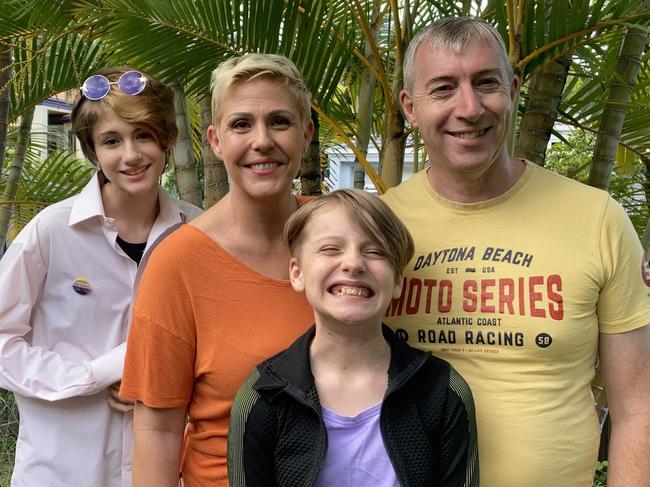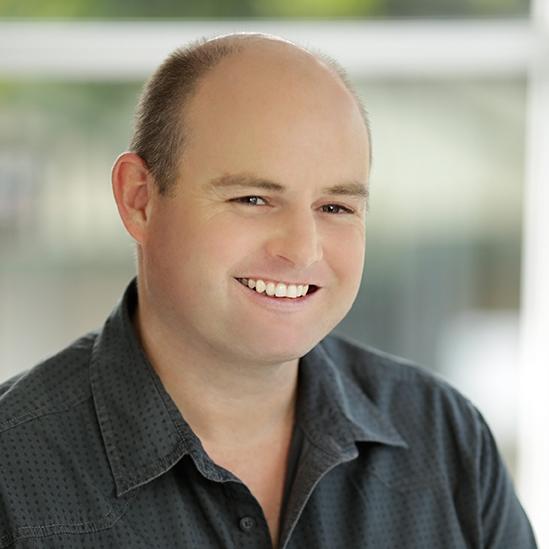‘It’s just too bloody hard’: Advice for participants and carers at risk of giving up on NDIS
More than two in five Australians say using the NDIS is “too bloody hard”. Now, experts have weighed in with tips for those struggling.
SmartDaily
Don't miss out on the headlines from SmartDaily. Followed categories will be added to My News.
Mandy Maysey has three children with Tourette syndrome but none are on the National Disability Insurance Scheme (NDIS) because “it’s just too bloody hard”.
Ms Maysey is president of the Tourette Syndrome Association of Australia and works in special education, but even she struggles to navigate the system with her husband.
“Every time I look at the paperwork, there is so much of it, there are so many hoops to jump through and I swear the system is designed to be intimidating to put people off,” she says.
Ms Maysey’s children – Conor, 27, Void, 15 and Tryxx, 11 – also live with other health issues that often come with Tourette, such as obsessive-compulsive disorder, bipolar disorder and mental health issues.
“All three kids have not just got physical and vocal ticks but they swear and say obscene phrases … and have punching and biting ticks,” she says.
“ (Conor) breaks his teeth from his ticks, so he needs dental treatment.
“His muscles are so tight and locked up across his back from physical ticks that some days he can’t got to work because he is so disabled – so he could do with seeing a chiropractor or having regular remedial massages.
“ (Tryxx) has been in a wheelchair three or four days a week since April because one of their ticks is that their legs don’t work (for a while).
“We have holes in our walls because physical ticks take a toll on the house and furniture, too.”

Ms Maysey says she would really like help paying for a psychologist, but does not know what support is available for her family.
The National Disability Insurance Scheme has been running for more than eight years connecting people with disabilities to information and services, yet almost half of Australians say it is still too complicated to navigate without expert assistance.
A survey of more than 2000 people by Developing Australian Communities and PureProfile reveals 42 per cent believe they could not navigate the scheme on their own, while 28 per cent are not even aware of the NDIS and what it does.
River Night, co-founder of Developing Australian Communities – which aims to create a voice for participants, providers, carers and industry leaders in the NDIS Sector – says there are many reasons the scheme can be complicated.
“They are still working things out so there are inconsistencies in decision making, the information they give people and what they do with service providers, family members and guardians, as well as people with a disability,” he says.
“That’s the challenge of setting up a large organisation from scratch nationally.
“But on top of that, you have a population of people that at times are not very good at self-advocating and may not have the capacity to understand complex bureaucracy, and the NDIS is very much set up for self-advocacy, run and directed by the participant.
“It’s a double-edged sword because it’s great to be focused on that person but they are using
NDIS because they have a disability, so they are not necessarily going to be able to run a process that is complicated for the everyday person.”

Mr Night says there are also issues with people with lifelong disabilities being asked to continually prove they still have that disability; people having funding declined with very little feedback; and people being asked what services they need without receiving any options of what is available.
ADVICE FOR NDIS PARTICIPANTS AND CARERS
Online resources
Night recommends joining groups on Facebook where members can talk to people who have gone through a similar experience, and ask for specific advice.
“Peer support is always really valuable,” he says.
He also directs people who are new to the NDIS to the plain-English explanations on the scheme’s official website: ndis.gov.au
Attend events
Developing Australian Communities runs Disability Connection Expos, which include a free Q&A concierge service, where people can ask specific questions about the NDIS.
“They might be unsure how to apply for something or unsure why NDIS has said no,” Night says.
“We might have 15 to 20 people there each day and people can have free access to that team.”
The expos also offer access to hundreds of exhibiting service providers and an entertainment zone with balloon animals, face painting and obstacle courses.
The next events are at Brisbane Convention and Exhibition Centre on March 4 and 5, Perth Convention and Exhibition Centre on May 20 and 21, and International Convention Centre Sydney on July 1 and 2.
Ask twice
Night says there are often inconsistencies in the advice given by NDIS staff, so people who are knocked back for funding should try again.
“The inconsistency is often just the fact it’s a large workforce and staff have different levels of training so if you don’t get the answer you are looking for, call up again and talk to someone else because you may talk to several staff and get very different answers,” he says.
“Try not to give up … because if we do give up, we end up in crisis and things become 10 times harder when that happens.”
Contact your MP
If you are struggling to get the help you need or a reason for why your request was rejected, Night recommends asking your local member of parliament or local councillor to help escalate the request.
“If they get the same message over and over from so many different people, that’s where we will see change,” he says.
Originally published as ‘It’s just too bloody hard’: Advice for participants and carers at risk of giving up on NDIS




